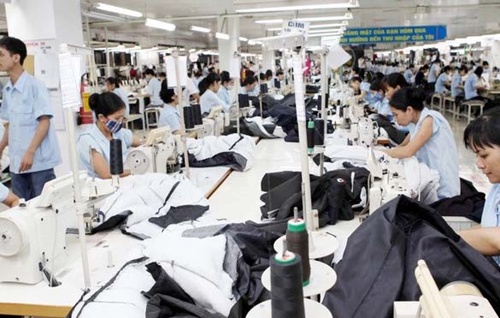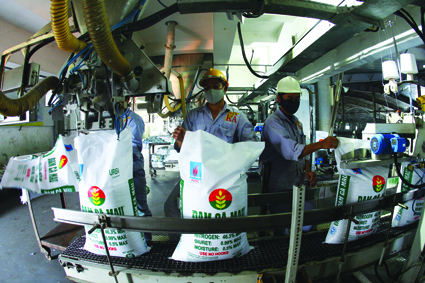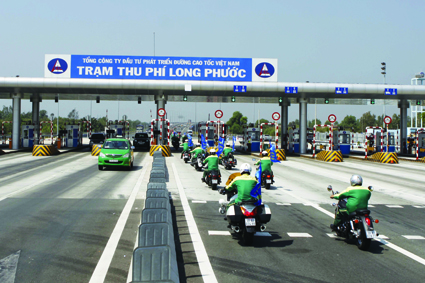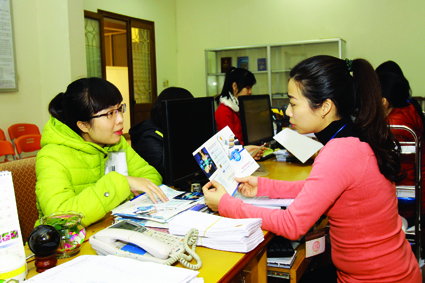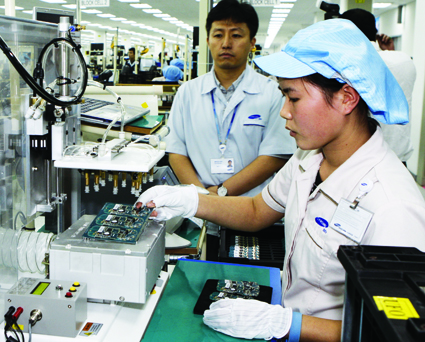Seck Yee Chung[1] and Dang Chi Lieu[2]
Baker & McKenzie (Vietnam) Ltd.[3]
As an effort to attract foreign investors in Vietnam’s stock market, on June 26, 2015, the Government issued Decree No. 60/2015/ND-CP[4] amending some articles of Decree No. 58[5] (Decree No. 60). Among the changes, the most welcomed amendment is the relaxation of the overall 49-percent cap on foreign ownership in Vietnamese public companies. Decree No. 60 will be effective as of September 1, 2015.
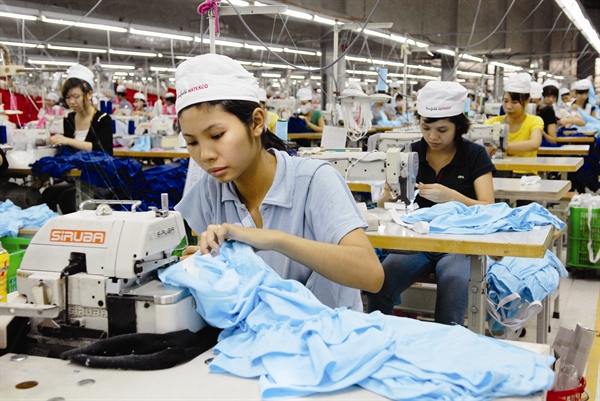 |
| Making export garments at Norfolk Hatexco joint venture between Vietnam’s May 19 Textile State Company Limited and Singapore’s Norfolk Global Private Limited __Photo: Danh Lam/VNA |
New provisions on foreign ownership ratio in Vietnamese public companies
Foreign ownership ratio means the total ownership ratio of shares or capital contribution with voting rights of all foreign investors and economic organizations in which foreign investors hold 51 percent of the charter capital or more[6] in a public company, securities trading organization or securities investment fund. Foreign investors are defined as individuals with foreign nationality or organizations established under foreign laws and conducting investment and business in Vietnam.
According to Decree No. 60, in case treaties to which Vietnam is a contracting member contain provisions on foreign ownership ratio, such treaties will apply.
This means that, for example, where Vietnam’s WTO commitments currently allow foreign ownership in certain business lines to be more than 49 percent (such as 65 percent for non facilities-based telecommunications services, or 100 percent for catering services), then foreign investors may cumulatively hold shares in a public company doing business in such business lines up to the ratio allowed by Vietnam’s WTO commitments.
As for public companies operating in business lines and industries to which the investment and relevant laws of Vietnam provide for a foreign ownership ratio, the provisions under those laws will apply.
For example, in the aviation sector, current regulations provide that the level of foreign investment in an airline must be restricted at 30 percent of its charter capital.
However, Decree No. 60 goes on to provide for another case where a public company operates in business lines and industries with conditions applicable to foreign investors but there is no provision on foreign ownership ratio, then the maximum foreign ownership ratio will be 49 percent.
This case may cause difficulty in implementation because there is no official list of “business lines and industries with conditions applicable to foreign investors.” The 2014 Investment Law provides for a list of 267 conditional business lines and industries, but this list arguably does not apply to Decree No. 60.
For a public company that operates in several business lines and industries with different provisions on foreign ownership ratio, the foreign ownership ratio will not exceed the lowest ratio applicable to the business lines and industries (in which such company operates) to which there are provisions on foreign ownership, unless otherwise provided under relevant treaties.
The application of the lowest foreign ownership ratio in this case means that the company will need to consider what its core business is, and might have to restructure (for example, closing or selling the part of its overall business that is subject to a lower ratio), if it wishes to have a higher foreign ownership.
For public companies that do not belong to the cases mentioned above, the foreign ownership ratio is unlimited, unless the companies’ charter provides otherwise.
With respect to state-owned enterprises undergoing equitization in the form of public offering of securities, the foreign ownership ratio will be in accordance with the laws concerning equitization. Where the provisions of law regarding equitization are silent, this ratio must be in accordance with the respective provisions as mentioned above.
Notably, current regulations on equitization do not have specific provisions on foreign ownership ratios (other than referring back to the relevant laws). However, on a case-by-case basis, the relevant government authorities may also impose certain specific foreign ownership ratio in an equitization plan for a specific company.
Investments in bonds and other instruments by foreign investors
Decree No. 60 allows foreign investors to invest without restrictions in government bonds, government-guaranteed bonds, municipal bonds, and corporate bonds, unless otherwise provided by applicable laws or the bond issuers. However, for convertible bonds, the issuers must ensure that the foreign ownership ratio upon conversion into shares or upon the purchase of shares will be in compliance with the provisions as mentioned above.
Foreign investors may also invest without restrictions in securities investment fund certificates, shares of securities investment companies, non-voting shares of public companies, derivative securities, and depository receipts, unless otherwise provided by the charter of the issuer.
Decree No. 60 imposes reporting obligations, as applicable, to public companies and listed companies to report to the State Securities Commission and disclose information regarding foreign ownership ratio on their websites, and websites of the Stock Exchange and the Vietnam Securities Depository.-



